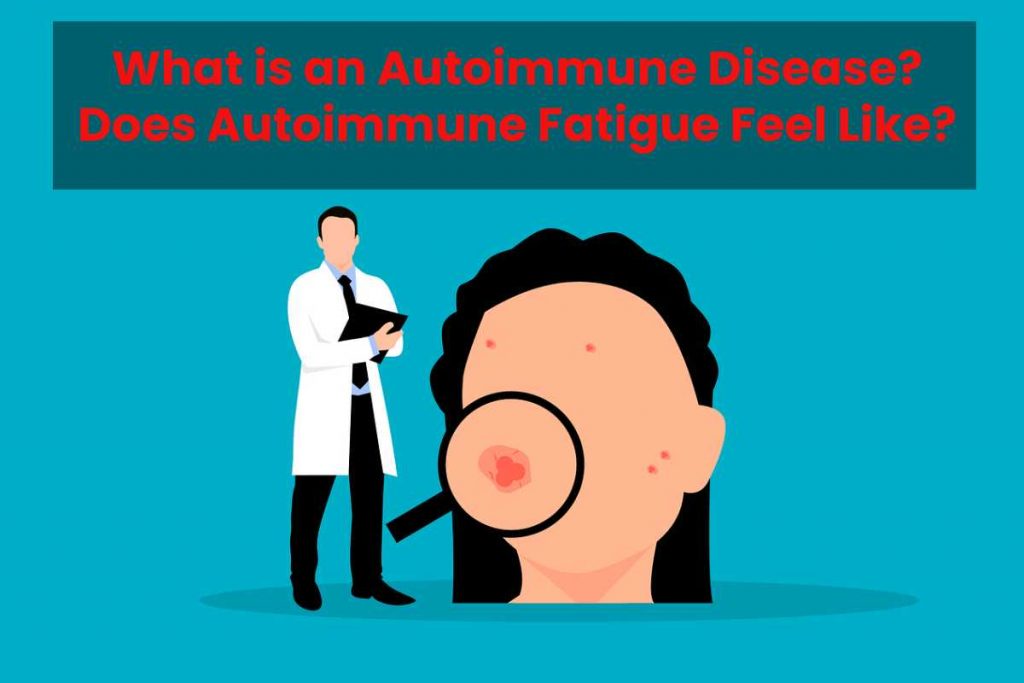Autoimmune Disease – An autoimmune sickness is a condition in which your immune system attacks your body. The immune system typically guards against bacteria and viruses. When it sanity these foreign invaders, it sends out an army of boxer cells to attack them.
Usually, the resistant system can tell the disparity between foreign cells and your cells.
In an autoimmune disease, the protected system mistakes parts of your body, like your joint or skin, as foreign. It releases proteins called autoantibodies that attack healthy cells.
Some autoimmune diseases target only one organ. Type 1 diabetes damages the pancreas. Other conditions, like systemic lupus erythematosus (SLE), or lupus, canister affect the whole body.
We’ve partnered with Cue Health, a healthcare business that makes lab-quality, portable diagnostic tests for at-home and expert users, to bring you this impression of autoimmune disease.
Table of Contents
Why does the Immune System Assault the Body?
Doctors don’t know what causes the immune system to misfire. Yet a few people are more likely to get an autoimmune illness than others.
According to a 2014 learn, women get autoimmune diseases velocity of about 2 to 1 compared to men — 6.4% of women versus 2.7% of men. The condition often starts during childbearing age (ages 15 to 44).
Some autoimmune diseases are more ordinary in a particular ethnic group. For example, lupus affects more African American and Hispanic communities than white people.
Certain autoimmune diseases run in the family, such as manifold sclerosis and lupus. Not every family member will have the same illness, but they inherit a weakness from an autoimmune condition.
Because the occurrence of autoimmune diseases is rising, researchers suspect environmental factors like infections and exposure to chemicals or solvents may also be involved.
A “Western diet” is another suppose risk factor for rising an autoimmune disease. Eating high fat, high-sugar, and highly processes foods remains thought to be link to inflammation, which might trigger an immune response. But this hasn’t remain proven.
BOTTOM LINE: Researchers don’t know what causes autoimmune diseases. Genetics, diet, infections, and exposure to chemicals might be involved.
When your immune system remains weakened, you may be at a higher risk of COVID-19. Be sure to get tested if you’re experiencing symptoms.
Cue Health’s portable testing system is design for at-home and on-the-go use. The molecular self-testing device offers accurate COVID-19 testing. Customers also get access to 24/7 virtual care with the Cue+™ membership.
The Link Between Autoimmune Disease and Women
Doctors aren’t sure why autoimmune diseases happen in the first place or why women are affect more than men. One theory is that senior levels of hormones in women, especially during the childbearing years, could make women more susceptible to autoimmune diseases.
However, Orban notes that this idea has not yet remain proven — many factors affect autoimmunity, both hereditary and environmental. Researchers cannot definitively clarify why women develop these diseases more than men.
The Role of Infectivity and Disease
On a basic level, autoimmune diseases occur because the body’s natural defenses — the immune system — attack the body’s healthy tissue. Researchers have several thoughts about why this happens.
When the body senses a hazard from a virus or infection, the immune system kicks into things and attacks it. It is call an immune response. Sometimes, well cells and tissues are caught up in this response, resulting in autoimmune disease.
Many scientists believe this causes rheumatoid arthritis, an autoimmune disease that attacks the joints. People expect to develop psoriasis after strep throat, an autoimmune condition that causes thick, scaly skin patches.
Other types of autoimmune diseases may come from the body trying to fight specifically against cancer cells. Orban points to scleroderma, a condition that causes thickening of the skin and connective tissues. “The thought is that when the immune system gets rid of cancer, there is a leftover inflammatory response because of that fight.” Johns Hopkins researchers studied patients who developed scleroderma and cancer to clarify this relationship.
The Damage Theory
Scientists believe the injury may play a role in some autoimmune diseases such as psoriatic arthritis, a condition that affects the joints of some people with psoriasis.
Research has shown that in body parts subjected to high stress, an autoimmune reply happens after damage to tendons, which join muscle to bone. For example, a runner’s heel is an area anywhere the force constantly pulls on the bone to create movement.
“This repeated stress can expose tissue that shouldn’t normally be in contact with blood cells,” says Orban. “When that tissue gets expos, it’s like a small wound. Blood cells try to heal it, but an abnormal immune response causes inflammation of the joints and tendons.”
Orban is quick to point out that while some data supports them, scientists have not proven that these are causes of autoimmune disease.
Conclusion:
Autoimmune Disease – Generally, it emphasizes eating a wide variety of fruits and vegetables, unsaturated fats, minimally refined whole grains, tea, coffee, herbs, spices, and oily fish. The Mediterranean and DASH diets are popular dietary plans that already showcase many anti-inflammatory foods.
